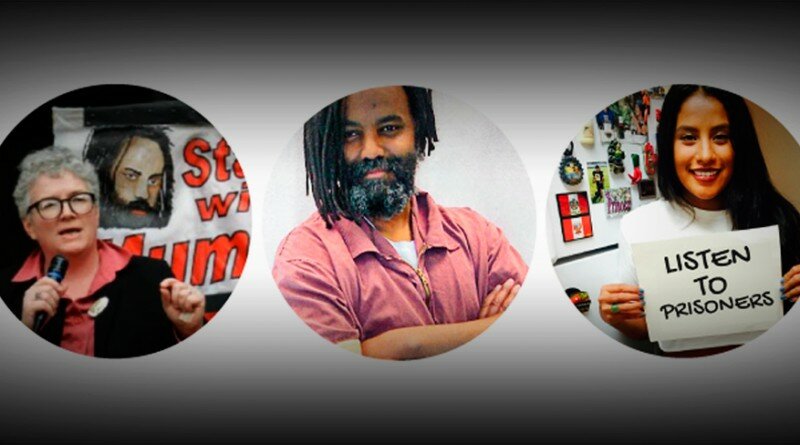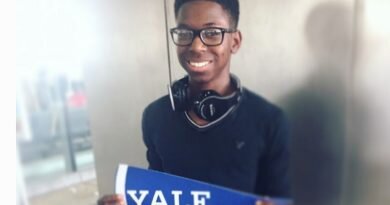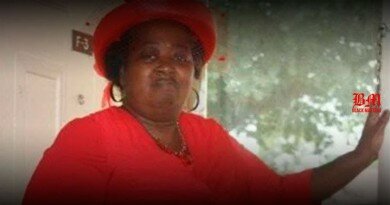blackmattersus.com
First of all let’s talk about Prison Radio. Who makes up Prison Radio? Could you tell us how it came to be and are you activists?
Noelle Hanrahan
Prison Radio was born out of a necessity of having the voices of prisoners as part of the media dialogue. When I was covering the execution in California of Robert Alton Harris way back in 1992, my public radio station was at the forefront of that coverage, but we didn’t have one inmate on the program. We had like 24 hours of coverage and it was a nationally distributed program, and I really felt that it was missing some key ingredients, which was the prisoners speaking for themselves. That’s how it was born, and we keep our focus on amplifying the voices of prisoners, uncensored, unedited, this is their perspective on what’s happening. So Prison Radio is hundreds of prisoners from around the country talking about a variety of different issues. Right now we have 47 correspondents calling from death rows around the country, solitary confinement, juvenile lifers, people doing life without the possibility of parole, folks in immigrant detention, we have a lot of different types of prisoners calling from many different institutions really getting their voices into the mix. Now, are we activists? We would just be journalists, right? Unless the state didn’t try and put its boots on our neck and keep us from doing the work. So we’ve placed our programs on national and public platforms, radios, all things considered, but they made it political when Bob Dole got up on the senate floor and threatened to impair our funding if they would broadcast Mumia Abu Jamal’s voice or really any prisoner’s voice. And so we had to become an independent grassroots organization because the mainstream media and the politicians were going to suppress these voices unless we fought back. We’ve developed a lot of organizing capacity to preserve prisoners’ rights, and we do it.
blackmattersus.com
How did Mumia get permission from prison authorities to take part in the radio?
Noelle Hanrahan
You know, prisoners do not lose their constitutional rights when they go to prison. They may be modified for security reasons. There’s case law that says their constitutional rights are modified but they don’t lose them. So prisoners have the 1st Amendment right to participate in our cultural community and in our media and we advocate for that every moment that they really can’t operate as a society without having the first person, the voices of the people who are affected, part of it. I tell a story whereby radio stations set me up to talk to homeless people and they wanted me to talk to Barbara Ehrenreich, who wrote the book Nickel and Dimed. And I was like, “No, I’m not talking to a wealthy academic. I’m going to talk to the people who experience homelessness because they are just as articulate, just as brilliant and have a much more direct experience.” I got in a lot of trouble because I refused to dismiss the voices of the people with experience than we’re having and it would be like doing a story on refugees and not talking to refugees, or like doing a story on refugees and only quoting what you want the refugees to say, not what they wanted to say. So Prison Radio makes sure that prisoners get that voice.
blackmattersus.com
Who is the audience, how many listeners do you have?
Noelle Hanrahan
We have a lot of listeners. It’s hard to measure but we are thinking about it a lot. We’re on a hundred radio stations each week, we have about 4,000 media outlets that have requested copies of our materials, we were part of a feature-length movie that premiered in 30 cities, so we know that we reach a lot of people. We have a lot of contact, we have 5,500 people on our email list, we have international outlets that play us, we’re on Democracy Now! Which has 2,000 outlets now, so we know that we get a very wide reach. We believe that our prisoners’ voices should be in the mainstream, and we ask our audiences to advocate that they be heard.
blackmattersus.com
And how’s content managed? Do you have someone who censors your content?
Noelle Hanrahan
Yes. We have 2 studios, one on the West Coast and one on the East Coast of the United States. We’re open a lot of the time, we have many hours that are filled with people who are ready to record prisoners and engineer the material, we get the material, we record at least once a day, and the people call-in from prison, or we go and visit prisons with recording equipment. We edit just for clarity in terms of like making sure that there’s a beginning and an end and that any of the prison noises are taken out, and we amplify the sound so that you can hear it better. We post it on our website immediately and then we send it out to radio stations.
blackmattersus.com
Are you working on any kind of monetization for the project?
Noelle Hanrahan
We have to raise all of our own money. Prison Radio has 2 studios and 4 staff and we have to raise the cost for doing the work that we do. So it’s not so much monetization as it is trying to create an independent funding base. We have about 2,300 people across the country who give us small donations over the course of the year and that really helps us. So we’re an independent, non-profit which accepts donations and gifts and we apply for grants, but we don’t get that many of them, but we would think we deserve them. If anyone uses the material that we create, we have a Creative Commons license, meaning that they can’t alter it or denigrate it, they can’t make it worse and they have to ask permission if they’re going to use it for any other monetary purposes, like if they’re going to use it in a movie or if they’re going to use it in an advertisement, they would have to contact us or we have a legal right to prevent them from using it. The prisoners and Prison Radio both have an interest in this and so in order for us to authorize say Mumia Abu Jamal’s audio to be used in anything, Mumia needs to get permission, and we need to give permission for using the recording. So I think we’ve come up with a solution that’s there and really easy for people to grasp, and we will approve projects that will pay us if we approve of what the project is about.
blackmattersus.com
Do you have any upcoming projects or events that we should be expecting?
Noelle Hanrahan
One of our fundraising opportunities is we created a crowd-funding platform and put it on our own website. We’re raising $50,000 in 60 days. We have till September 9th, so we’re actively trying to motivate and fund our ability to record more prisoners all across the country and I think we’re being quite successful and things are really jumping off. This September is going to see prison strikes all across the country, we’re really going to see a change. The change is going to come from people inside and we’re going to be there amplifying their voices.
blackmattersus.com
You guys are really doing a great job.
Noelle Hanrahan
Thank you, I appreciate that. We really think we’re sort of at the tip. Things are going to change, and things are changing.
blackmattersus.com
What would you say is the most discussed issue by people streaming their voices from prison?
Noelle Hanrahan
Right now, I would say it’s the overpopulation, mass incarceration, plus juvenile lifers, prison conditions, and the types of prisoners that are particularly vulnerable. A lot of our prisoners talk about other prisoners or other prisoners’ issues, whether it’s suicide, or juvenile lifers or immigrant detention, they really have a keen sense of compassion, and are very sensitive to what’s happening to people inside. So we have a lot of correspondents who deeply care about improving the conditions and eliminating and abolishing prisons, so I’d say that’s their main focus. And of course Mumia Abu Jamal is just commenting on the elections, and a bunch of our men and women talk about the elections too.
blackmattersus.com
Mumia has been in prison for many years. Does involving himself in Prison Radio help him to remain inspired and not give up?
Noelle Hanrahan
You know what’s interesting? I think he’s incredibly resilient, and I’m not sure what would’ve happened had we not joined forces with him 23 years ago. Mumia has been in prison now for a very long time, since 1981, so I know that it’s just one avenue. He has many avenues of feeling able to war on and grow. A number of years ago he taught himself to play a musical instrument when he had no musical instrument. He has this voice and he’s an accomplished singer. He taught himself French, he taught himself German, he taught himself Spanish. He’s very engaged and he encourages others to use all of the time that they have productively and as a sort of soul enriching. He really believes that part of staying alive is to grow and I think he transmits that to other people inside. And I know many of the folks who work inside, they’re artists, they’re writers, they’re very interesting and dynamic people.
And Mumia needs our help. It’s very difficult to do this alone and right now he particularly needs our help because he’s very sick and so we’re fighting to get him the cure to Hepatitis C. We have a whole campaign about that. Mumia is resilient and energetic, but he’s also like every other prisoner, and at this point he desperately needs the medical cure to Hepatitis C and we’re fighting to get him that right now.
blackmattersus.com
How can we help?
Noelle Hanrahan
Join our e-blast. If you go to prisonradio.org, join our e-blast, you’ll feel the tip of everything that’s happening. About once a week we send out our ‘what’s the latest’ and right at the top is this ‘join us.’ Just click there, get on the e-blast, do whatever you can within your own communities. We never know what the tipping point is going to be, but something is going to tip it, and every action matters. We say every gift matters, every action matters and it makes a difference.
blackmattersus.com
If you follow the news, you’ll see that recently government has decided to shut down private prisons. Do you see this as a personal win or do you think that Prison Radio is achieving one of its goals of fighting against the prison industrial complex?
Noelle Hanrahan
Yeah, everybody is clapping and celebrating, but it’s a just smokescreen, it’s a lie. They’ve not agreed to eliminate any prisons, and the national order of stuff is it’s a staged event by Obama to placate some neo-liberals. It really is a distraction because it affected 15 prisons in total. It only changes the sign on the door to make it a federal prison and not a private prison, it has nothing to do with the vast number of people that they have imprisoned. And the Federal Government under the Department of Homeland Security has vast private prisons that deal with immigration detention. It doesn’t have anything to do with that either. So it’s a total lie.
blackmattersus.com
Activist Michael Moore is also demanding 2 things. You see that he’s demanding first, the unarming of cops and the freeing of all Black non-violent prisoners. These goals could become the mainstream of the Black rights movement in America. What do you think? Is this a real demand or are there some grounds we have to cover to make them real?
Noelle Hanrahan
I think our imagination is important. I think we have to be extraordinarily creative, you never get what you don’t ask for, you know, the Frederick Douglass quote. We have to ask for what we need which is the abolition of all prisons. We have to ask for the elimination of bail, we have to use the most dramatically creative, engaging and powerful revisioning that we need to and this is just a part of it. What Michael Moore is saying is a minimum, and we need to keep talking about it. If we ask for a little we’ll get a little, you cannot tinker with the machinery of death, you cannot reform this culture of mass incarceration and neo-slavery. This is slavery, this is an extension of the United States’ slavery. It’s in our constitution, it’s in the amendment. It says: Slavery will be abolished except in prisons. So we have this legacy and we have to imagine a future that has none of it, and we have to call it into being. If we don’t demand it, we’re not going to get it. And enough is enough. I mean, we cannot modify this system. I went and got my masters in criminal justice because I thought I could learn something, but we refuse in this country to study any other country. And we’re setting a broken system, it was this closed system where we were trying to fix something that was completely out of step with anywhere else in the world. I think, can we just please, please study some other culture that does this more effectively? We have to, and I believe that Michael Moore is on the right track and he should think bigger.
blackmattersus.com
Now let’s go back to Prison Radio. Which prisons participate in the radio streaming?
Noelle Hanrahan
I would imagine they’re so many. I mean, we’re a culture and a country full of prisons so we’re recording in Texas, California, Virginia, Rhode Island, Ohio, Massachusetts, it’s just on and on. We are recording in a lot of places with a lot of different folks because we have 2.3 million people in prison and because 1 in 46 of our citizens is going to do prison time and 1 in 99 are currently incarcerated. So we can’t keep up, there’s just a lot of over-incarceration here.
blackmattersus.com
Do you face any resistance from prison management and cops?
Noelle Hanrahan
Absolutely. Any journalist who does this kind of work faces repercussions for doing important investigative journalism. We constantly are litigating, suing, appealing, advocating for the rights of the prisoners in a variety of ways, whether it’s their conditions or their ability to speak. So we’re constantly knowing our rights and fighting for them as one of our slogans. We have to know our rights and we have to fight for them.
blackmattersus.com
Looking at cases like Mumia’s,
MOVE 9 and many other innocent people who have been sentenced many years ago, most of the time you can see that these sentences happen due to some form of racial discrimination and we can’t say that the initial trial of these prisoners is justified. Why do you think it’s so hard to appeal and achieve justice for these people?
Noelle Hanrahan
Because if they win their appeals and their cases, it will expose the contradictions in the whole system. So many of the people that are responsible for putting our political prisoners in prison are responsible for the whole system, and it would call into question the hegemony, it would call into question their whole reason for being. If we were able to win some of the most high-profile cases then we’d expose the bias of the system. So they really are holding on very tightly. That’s why they don’t call political prisoners in the U.S political prisoners. They’ll convict people of treason, they’ll convict Puerto Ricans of seditious conspiracy, a treason charge which is the exact definition of political imprisonment, but they won’t use those words because if they did they would expose themselves to having political prisoners. So I think that’s why they hold on to some of them so much and probably because they’re very strong and eloquent activists. These people inside who are political are very eloquent, so they try and silence them, and then they try and make sure they don’t get out. And it’s the victory. They don’t want us to feel those moments of victory and I think that we cherish them when we get them.
blackmattersus.com
How do you think that ordinary people and activists from different groups can help to free Mumia and other political prisoners? What do we need to do?
Noelle Hanrahan
The only thing that’s going to help to free political prisoners in the U.S is activism. And a lot of times it matters where it comes from so if it’s from outside the U.S, it actually has a pretty darn big impact. So I would say, don’t ever think that any action you take isn’t going to matter. It is. It’s going to make a huge difference. We just don’t know which one will be the tipping point, but it emboldens other people, it raises the issue, it’s super important for people to both give monetarily and to take action.
blackmattersus.com
Is there anything that you’d like to say to our readers because we have a big following and we’d like them to know exactly how they can help?
Noelle Hanrahan
Just thank you, thank you, thank you for being there, thank you for caring, thank you for taking a stand because it’s going to call into being the future that we all want and if you’d like more information you can go to www.prisonradio.org.









